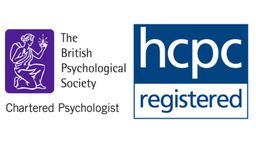The Assessment Process
What happens before your appointment?
It is important for me to gather as much information as possible by taking a detailed history, over the phone, about early development and any health or physical needs as well as what your concerns are. It is also useful to gain information from the school/college about any concerns they may have. Where appropriate, a visit to the school can be arranged to observe social, emotional and academic interactions. School information will not be sought without parental consent.
What will happen during the assessment?
It is important to reinforce that this is not a test or an exam, and that there is no right or wrong in how they approach it. The assessment is a way to try and understand how the child/adult learns.
We will talk about interests and self-perceptions as well as anything causing concern.
I use a range of tasks and materials to identify any strengths and challenges that may be impacting on learning or work access. These include cognitive and standardised assessments. Some tasks will require a verbal response, some are more practical, and others are visual in nature. In addition to this, literacy and numeracy abilities will be formally assessed to identify whether performance is as expected for a given age and general ability. All the assessments are used to help identify targets and approaches that may be beneficial in supporting progress in an educational or work setting and allowing more effective learning. The assessment will take approximately 2.5 hours and breaks can be taken if and when needed.
What happens after the assessment?
On completion of the assessment, all results will be fed back and discussed with you. A detailed report will then be written highlighting the strengths and potential barriers to learning that have been identified. Where appropriate, a diagnosis of a specific learning difficulty may be given (e.g. dyslexia). However, where a specific diagnosis is not reached, strategies and recommendations will still be suggested to support learning both at school and at home (or in the workplace).
It is then recommended that the report is shared with the school/college/university to allow teachers to have a greater understanding of what is needed to enable success in the learning environment.

We need your consent to load the translations
We use a third-party service to translate the website content that may collect data about your activity. Please review the details in the privacy policy and accept the service to view the translations.
